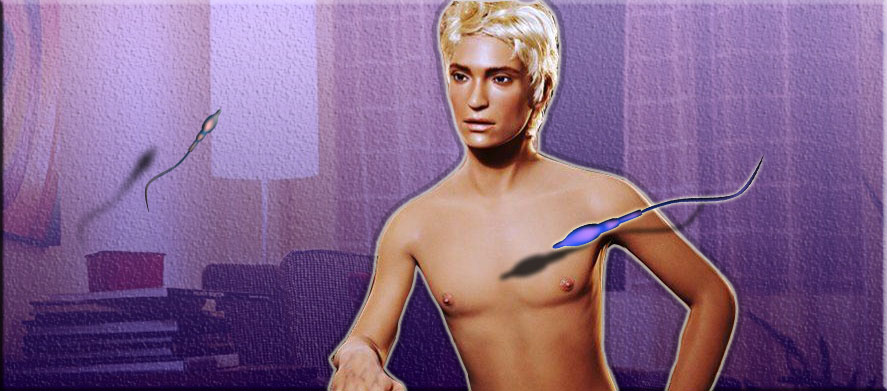I’ve tried stand-up comedy six times at this point. I’ve begun every set with renewed excitement that this will be the crowd that laughs at my personal favorite joke: “I used to dislike the taste of vegetables, and now I eat ass.”
Still no luck. I have no idea how I can make that not funny, I mean it is funny, right? Is it my delivery? I guess it’s all about delivery.
Dina Hashem is a master of delivery. Her shy, reserved presence animates her withering lines. Hashem, in the 2017 RoastMasters Tournament, to some “big loud guy” (Dave Kinney): “Dave, it’s impressive you can be so large, and yet so unnoticeable.” Hashem on Mike Recine, who, she reports, has “sent a dick pic to every female comic in the city”: “His pick-up line is ‘can you help me finish this joke?’”
Hashem first tried stand-up at the 2010 New Jersey Comedy Festival. She won first place. Now she’s a regular at the Comedy Cellar and the Stand, clubs which have launched the careers of Aziz Ansari, Jon Stewart, Sarah Silverman, Robin Williams, Chris Rock, Amy Schumer, and Bill Burr, among many many others.
I was curious about the nitty-gritty details of how a professional writes jokes and builds a comedy career. In our interview, which is edited for clarity and concision, we discussed grimy Jersey comedy clubs, the power of Netflix and social media, and what it’s like to watch a crowd laugh at something you’ve said so many times that you don’t even think it’s funny anymore.
I have stand-up ambitions myself, so I’m curious about the arc of your career. I read that you got started on a whim in college and you entered a competition while at Rutgers. Is comedy something that you secretly always wanted to do?
I did not ever want to be a stand-up comedian. It was never on my mind. It really just happened to be that I had a friend in my philosophy program who wanted to do it. I still don’t really remember why I decided I would do it, too. I think about it often. I guess it just sounded fun and I liked this particular person, so I thought it would be fun to do together. So I wrote five minutes of jokes, which I’d never really done before, and we helped each other figure out our sets, and then I did the first round and I did really well, and then I ended up winning.
I guess what really attracted me to it and kept me doing it was the fact that I could speak to strangers and crowds of people for the first time, which I had never been able to do. I’ve had really bad social anxiety my entire life, and was not used to speaking vulnerably about myself, or anything really. So when I found this vehicle of being able to do that, I got addicted. The real function of it at the beginning was not just to be funny. It was a form of therapy, which I hate saying because I hate when comedians say comedy is therapy. But it really was for me.
I read that the money you made from that competition was the most money you made in comedy for the next seven years?
Yeah, for sure. I won a thousand dollars.
Oh, wow.
Yeah. I definitely didn’t see any money like that for years after that.
In the early years after graduating, how did you fit comedy into your life?
It became my full focus. I mean, I had other jobs. But it was the main thing I was interested in. The Stress Factory is still the main club in New Jersey, and luckily that was right in the middle of Rutgers campus, so that’s where I spent a lot of time. There is an open mic every week that I would go to. And then I made friends with other Jersey comedians and so we would drive around to whatever mics were in other parts of the state. Some of the worst mics I’ve ever done, pretty much.
How come?
The environments were so insane. First of all, there were not a lot of women comedians. I distinctly remember being one of the only ones, so I was just constantly around guys who think they’re funny and are not, and also just screaming, and lots of creeps. I always stuck out, which is a good thing, but also—there was a sports bar where we would perform and people would just want us to shut up because they were trying to watch sports.
Do you remember how often you would try and mix in new material at that time?
I was constantly coming up with new things. In the beginning you’re just flooded with ideas because you’re not really sure yet what your voice is, or what’s funny, or what’s already been done, so you’re throwing everything out there. I definitely had one joke that has survived throughout the beginning until now: that Beatles joke that I told in my first Conan set.
The “Help” one?
Yeah. [“What Beatles song would you make love to me to?” “Uh… ‘Help’?”] I definitely would use that. There are some jokes that were solid enough that I knew that I could get a laugh if I needed to. Those jokes are really important at the beginning.
I haven’t done that many open mics, and I’m also based in Salt Lake. I don’t know if you’ve ever been to Wise Guys, but it’s the main comedy club here. At the open mic night, there’s a bunch of weirdos yelling about Hillary Clinton and just randomly going off. But anyways, I have found that if you don’t start off well with a good joke, then you’re just kind of fucked. Or at least I am.
Yeah, as you progress you’re more comfortable with digging yourself into a hole if you want to try something new because you do know that you have some things in your back pocket.
I would assume that jokes at a certain point, since you’ve been doing them for years, are not even funny to you anymore. Is it weird to tell them and then hear the room laugh even when you personally don’t think they’re funny anymore?
Oh yeah, absolutely. I don’t even know if some of my jokes are funny anymore. I just know that people laugh at them, even though I’m like, “I don’t think I would laugh at this.” There’s such a weird detachment from your material that happens after enough time passes, and the amount of time that passes between thinking one of your jokes is funny and then not being sure why it was funny in the first place becomes shorter and shorter the longer you do it.
Do you feel that it’s hard to try new stuff when you’re in New York?
The main place I go up these days is the Comedy Cellar, which is not the place you want to be constantly trying new things. So whenever I get booked at any new place is where I try to pepper in new things.
Do you remember how your “if there’s grass on the field, play ball” joke came about? [“I had to be like, ‘if the grass is too thick to move into, they cancel the game?’”]
That was one of those jokes that just came into my head all perfect and crisp, which happens less and less the longer I do this. I feel like some of my best jokes are often just completely inspired. They come from some sort of comedy muse and they appear in my head. And then the ones where I really need to think about it are generally not my favorite jokes. That was a lucky one.
I tried out the Judd Apatow MasterClass and he suggested thinking of ideas and writing down maybe 20 jokes for each of them. Does your writing style resemble that in any way, or is there anything interesting that you have found works for you?
I still haven’t figured it out. That Judd thing you just said—that sounds like a pretty good idea. Maybe I’ll try that one out. I don’t know! I want to just rely on my brain delivering me gifts, but like I said, it happens less and less.
These days, I dig into my past a lot. I think about things that have happened to me or people in my life, and things that were funny at the time about the situation, and I try to think about why they’re funny and then try to come up with a premise-punch format for it.
For the most part, my jokes are pretty short. I don’t really know how to tell stories. It’s something I should probably work on. If I’m doing a headline set, if I’m doing 45 minutes, it’s basically just an organized-by-theme collection of my jokes where I’m trying to find a logical way that they lead into each other so that I can remember the order.
What has it meant for you to become more professional in your comedy?
It’s a lot less fun, mostly. I look back on those earlier years where really all you were concerned about was writing jokes and being with your friends and riding from show to show and just trying to impress each other and impress the best comic in the room. It was a lot more about stand-up in its purity, which is what I liked about it. Then as you try to make it your actual job, and it’s really about money and your career, everything that isn’t just being on stage gets involved. And none of that is fun, worrying about showbiz and marketing yourself and social media now. It becomes a job.
What’s your next step?
Everyone’s thinking about their special. The landscape right now is so fucked up… There’s a million different channels and it’s not clear what’s getting views and what isn’t. Right now it seems like Netflix and YouTube are the places that get the highest views. So you can either win the lottery and get paid a bunch to do some sort of Netflix thing, or you can put out your material for free on YouTube. Those seem to be the best options for getting the most amount of eyeballs on your work. And if you can’t get Netflix or you don’t want to put out your material for free, you can try to go to one of the other places, but it’s not clear who’s watching—is that going to help you sell tickets on the road? Because the idea is to put something out that a lot of people see, and then you can tour and make money.
Right now, I really want to put something out, but I have to decide if I should wait and hope if something like Netflix works out. I haven’t put out anything very long—like you said, just a few minutes here and there—but I have all this stuff I need to dump, you know? Because the longer I hold on to it, the more I’m afraid of dumping it, because then I’ll have to start over again, but in order to continue writing and coming up with things, I think part of that is getting rid of material. It’s at a juncture now, where I’m deciding what to record and where and how to put it out, and when.
I’ve been reading some of the YouTube comments on your videos, and it seems like everyone just wants more.
Oh that’s good to hear, I don’t read the comments anymore.
They mostly just say “wow, she killed it.” And I’m not just saying that, there’s that video of you in the roast where you destroy that guy and people on other videos are like, “oh, is this the person that destroyed that dude?”
Anyways, I think part of what made that roast so awesome is your strong delivery, with a low-key presence on stage. Is that a persona that you are putting on? Or do you feel like that’s basically you? What is the difference between the Dina Hashem we see on stage and the person who just exists in the world?
The general vibe on stage is definitely a part of me and part of my general way of going about life. But the part that’s not there is me being goofy and more animated, like I am with my friends or my boyfriend.
That aspect I haven’t brought to the stage. I’m not sure if it makes sense to, or if I want to, because my stage delivery evolved from a real place of being anxious and afraid and shy. Then it gradually became more loose and more me, but still not completely like every facet of how I behave in my life: a dilution of the darker and drier part of me.
There’s the stereotype that comedians are jealous or mad at other people’s success. Did you have a phase where you related to other comedians in a way that you look back on as misguided?
I think in the years of trying to get to a place of like, “OK, now I feel like a comedian, now I feel like I have enough evidence that I am good and I can continue to do this”—up until then you view it as a contest. You see who’s getting ahead and if you feel like you’re better than them. Then you get sad.
Nate Bargatze has my favorite line about that on the Pete Holmes podcast, where he would say to his agent “just please don’t make me hate my friends.” You don’t want to get jealous of your friends for getting further—not because you begrudge them their success but because you start looking at yourself like, “Oh my god, what am I doing wrong? I’m going to fall behind. Am I going to be somebody or not?”
I think those feelings are unavoidable. The more comfortable you get with what you’re doing and what work you’re getting, some of that goes away. It’s just fun also to get mad at other comedians. But mostly I think that anger gets transferred to the proper place, which is the people in power, the people making the decisions. Being mad at executives’ decisions—I don’t think that ever goes away.
What is your view on using social media to promote yourself? It seems like you don’t really like it very much.
Well, I think it’s poison. If you’re a regular human being, there’s no need to have it. And if I wasn’t doing comedy, then I wouldn’t have it. But it’s become this integral part of trying to reach people. It’s tied up with how it’s easy to complain about the industry, but now there’s this whole other way to promote yourself and find your own audience and make your own living, so you can’t really complain. I mean, you can, but it is this other outlet and way to do it.
It’s hard to figure out. These algorithms are basically their own sort of executive power. You don’t really know how they work. It’s a mystery. You don’t want to think that you have to keep putting out your work for free either, but that apparently has become a model of building a career. You don’t want to think of yourself as just helping these social media apps profit margins with your own work you’ve put out for free, but it is exposure.
I don’t know. I know I have to do it. There’s comics who do it really well, like my friend Sam Morril has really cracked it and he’s a machine, so it’s hard to copy what he does because he puts out so much material. It’s insane. So you have to do it unless you’re one of these people who just gets chosen by the industry to be a star, and then you don’t have to. But that’s obviously not many people. ▩


